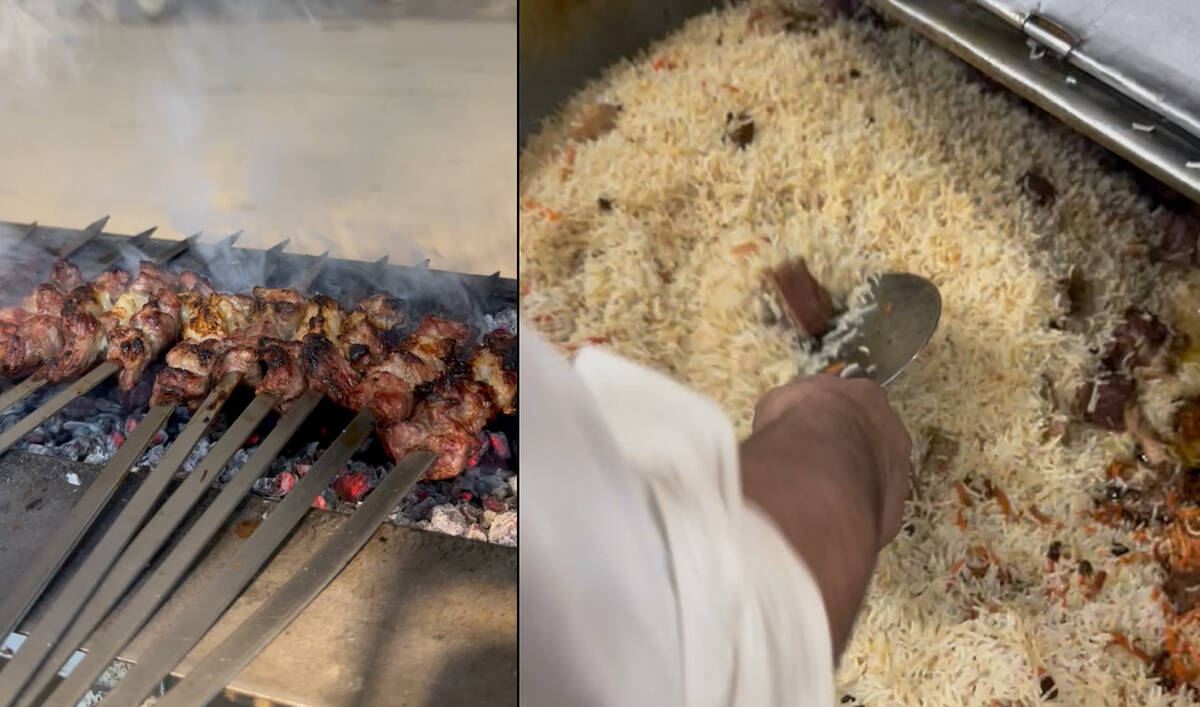DUBAI: Soner Muran may have sharpened his culinary skills at one of Turkey’s top schools, but it was his grandmother’s cooking that lit the initial fire.
“My earliest memory is grilling sardines with my grandmother. The smell of the sea and the fire stayed with me. I knew early on this was what I wanted to do,” Muran tells Arab News.
“I started studying in the most famous chef school in Turkey (Bolu Mengen Culinary School) when I was 14. After four years of education, I started working in Istanbul’s fine-dining restaurants,” he continues.

Muran is now head chef at Sur.Dubai. (Supplied)
Muran is now head chef at Sur.Dubai — inspired by SurBalik, a seafood restaurant that has been a cornerstone of Istanbul’s culinary scene for 20 years. Sur.Dubai has a Mediterranean-inspired menu that highlights the coastal heritage of Turkey’s Aegean and Mediterranean regions.
“We cook fish over a wood fire, which is rare in Dubai,” says Muran. “That fire adds depth, smoke, and tradition. Our flavors are bold but simply focused on quality seafood, modern touches, treated with respect.”
Here, Muran talks about his love for seafood and his favorite dish to cook, and shares a simple fried mussels recipe.
What was the most common mistake you made when you were starting out?
I used too many ingredients. I thought more meant better. But great cooking is about balance, not showing off. Now, I focus on fewer elements, greater techniques, and give extra care to every single ingredient in a dish.

Sur.Dubai is inspired by SurBalik, a seafood restaurant that has been a cornerstone of Istanbul’s culinary scene for 20 years. (Supplied)
What’s your top tip for amateur chefs (cooking at home)?
Reduce ready-made items. If possible, avoid buying them altogether. Good food takes a little time, even if it’s simple. Take your time to cook better food. Also, taste as you go. Trust your senses.
What one ingredient can instantly improve any dish?
Olive oil. A splash of acidity can lift flavors, balance richness and bring freshness. Especially with seafood, it’s magic.
When you go out to eat, do you find yourself critiquing the food?
Yes, it’s hard to switch off. I don’t judge harshly, but I notice details.

Sur.Dubai has a Mediterranean-inspired menu that highlights the coastal heritage of Turkey’s Aegean and Mediterranean regions. (Supplied)
What’s the most common issue you find in other restaurants?
The most common issue is lack of seasoning or dishes that try to do too much.
What’s your favorite cuisine?
Seafood, always. I like to see how other chefs handle it — how fresh it is, how it’s cooked, what flavors they use. It tells me a lot about the restaurant. And I just love seafood; it’s clean, light, and full of character.
What’s your go-to dish if you have to cook something quickly at home?
A simple risotto with parmesan and lemon. It’s comforting, quick if you keep stirring, and you can adjust it based on what you have — like peas, herbs, or shrimp. It feels special even when it’s simple.
What customer request most frustrates you?
When guests ask for a perfectly cooked fish, then ask for it well done. Or when people expect fast-food timing from a wood-fire kitchen. Good things take time.
What’s your favorite dish to cook?
Olive oil braised root vegetables with a nicely grilled wild seabass together with some butter-glazed mussels.
What’s the most difficult dish for you to get right (whether on your current menu or not)?
Bouillabaisse. It’s a traditional French seafood stew, but making it properly is complex. The broth needs depth from the fish bones, shellfish, and herbs. Timing is everything — each seafood needs different cooking times. It’s a dish that tests your control and your palate.
As a head chef, what are you like? Are you a disciplinarian?
I’m focused but fair. I don’t shout — I lead by example. I want my team to love what they do but also take pride in doing it well. Respect is key, both ways.
Chef Soner’s fried mussels recipe

Mix 1 cup flour, 1/2 cup cornstarch, salt, pepper, and cold sparkling water into a thick batter.
Dip cleaned mussels in batter.
Deep fry at 180°C until golden (2–3 mins).
Drain and serve hot with tarator sauce.
Tarator Sauce
Soak and squeeze stale bread (1 cup).
Blend with 1/2 cup walnuts, 3–4 garlic cloves, 3 tbsp lemon juice, 1/2 cup olive oil, and salt.
Add water if needed for a smooth texture.
Serving Tip:
Serve with pickles and fresh coriander leaves for extra flavor.




















